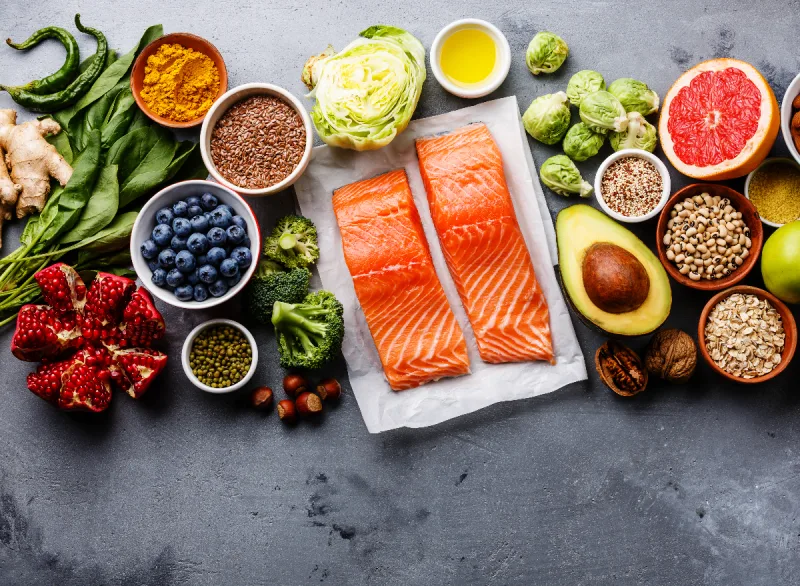News & Events
Home Healthy Nutrition in Preschoolers
Healthy Nutrition in Preschoolers
Observing energetic children playing in the yard, one becomes acutely aware of the pivotal role that nutrition plays in fostering a child’s growth. Adequate nutrient intake is the cornerstone, as it empowers young ones to exhibit agility, robust physical prowess and an inquisitive mind which are essential for absorbing knowledge from their surroundings.
During the formative phase spanning the initial five years, nutrition’s significance amplifies significantly, particularly for preschoolers. Gaining insight into the profound impact of nutrition on a child’s developmental journey is crucial. Equally important are the actionable measures one can adopt to steer a child toward embracing wholesome dietary patterns

What is Good Nutrition for Preschoolers?
During the preschool years, children experience rapid physical and cognitive development, hence the importance in providing them with a well-balanced diet.
The five main food groups include grains, dairy, protein, vegetables and fruit which can give children the necessary vitamins and minerals to achieve a strong body and a resilient immune system.
Remember, a good diet works best with the addition of regular exercise or physical activity, which results in future healthier lifestyle choices in children (and their family members)!
The Benefits of Good Nutrition for Preschoolers
The preschool years, ages 3-5, are an influential time for developing healthy habits for kids that can last a lifetime (According to American Susan J. Wood, Director of Mental Health.)
Children need essential nutrients to be strong and healthy as they grow and develop. Some of the benefits of good nutrition for preschoolers include:

- Growth and Development: A well-balanced diet that includes essential nutrients like proteins, carbohydrates, fats, vitamins, and minerals is vital for supporting their growing bodies, and strengthening bones and muscles.
- Cognitive Development: Good nutrition is closely linked to cognitive development in preschoolers. A diet rich in fruits, vegetables, whole grains, and healthy fats can enhance cognitive function and promote better academic performance.
- Energy and Vitality: Providing a balanced diet with adequate carbohydrates ensures preschoolers have the energy they need to participate in physical activities, maintain a healthy weight, and support overall well-being.
- Immune System Function: A strong immune system is essential for fighting off infections and illnesses.
- Prevention of Nutritional Deficiencies: Good nutrition helps prevent nutritional deficiencies, which can negatively impact a child’s health and development. Iron deficiency, for example, can lead to anemia and impair cognitive function. while inadequate intake of calcium and vitamin D can affect bone development and increase the risk of future health issues like osteoporosis.
- Healthy Weight Management: Establishing healthy eating habits early in life can contribute to maintaining a healthy weight in preschoolers. A balanced diet that includes appropriate portion sizes and limits the consumption of sugary snacks, processed foods, and sugary beverages can help prevent childhood obesity and associated health problems.

Recommended Nutrition for Preschoolers:
Parents need to give children a variety of foods to get sufficient vitamins, nutrients, fibers, and minerals. As children are more prone to visuals, parents can practice putting whole foods which comes in a variety of colours on the plates –young ones will be more excited and interested to taste the flavours of a healthy rainbow!
Nutrition for the MIND to Help the Brain
While there isn’t a specific “magic” food for the mind, a balanced diet that includes a variety of nutrient-rich foods can help support brain health. Here are some nutrients and foods that are beneficial for the brain:
- Omega-3 fatty acids: found in fatty fish (such as salmon, mackerel, and sardines), walnuts, flaxseeds, and chia seeds
- Antioxidants: This help protects the brain from oxidative stress and inflammation: blueberries, strawberries, raspberries, dark chocolate, green leafy vegetables (like spinach and kale), and colorful fruits and vegetables.
- B vitamins: including vitamins B6, B12, and folate, are important for brain health and function. Good sources of B vitamins include whole grains, leafy green vegetables, legumes, nuts, and seeds.
- Dark chocolate: Dark chocolate, particularly those with a high cocoa content (70% or higher), is rich in antioxidants and flavonoids that can improve blood flow to the brain and enhance cognitive function.
- Nuts and seeds: These are excellent sources of vitamin E, antioxidants, and healthy fats. Walnuts, almonds, cashews, flaxseeds, and chia seeds are particularly beneficial for brain health.
- Whole grains: like brown rice, quinoa, whole wheat bread, and oats. They provide a steady release of glucose, the brain’s primary energy source, which helps sustain focus and mental clarity.
Conversely, processed foods including refined sugar, colourings and other artificial additives, can negatively affect a child’s mind, making them feel hazy and less focused.
Nutrition for SPIRIT: Implement Healthy Habits
Here are some tips to help your children with healthy habits:
- Be a role model: Children are more likely to adopt healthy eating habits if they see their parents practising them. Parents should model healthy eating behaviours by consuming a balanced diet with plenty of fruits, vegetables, whole grains, and lean proteins.
- Offer a variety of foods: Parents can introduce a wide range of fruits, vegetables, whole grains, and proteins to expose children to different flavours and textures. You should encourage them to try new foods, but also be patient if they show resistance.
- Limit sugary snacks and beverages: You can minimize the consumption of sugary snacks, sodas, and juices.
- Make mealtime enjoyable: Parents create a positive and enjoyable mealtime environment. You avoid pressuring or bribing children to eat certain foods. Instead, you make mealtimes relaxed and enjoyable, allowing them to explore and enjoy their food at their own pace.
- Educate about nutrition: Parents teach children about the importance of nutrition and the benefits of different food groups. You explain how food fuels their bodies and helps them grow, learn, and stay healthy.
Nutrition for the BODY: Grow Strong and Live Long
Some important nutrients for the body include:
- Calcium strengthens bones. Found in milk, yoghurt, and seeds.
- Protein builds muscles: Found in poultry, fish, eggs, beans, lentils, and tofu. Proteins are important for muscle growth and repair, as well as for the production of enzymes and hormones.
- Carbohydrates provide energy. Found in whole grains, legumes, fruits, and vegetables. They provide a steady release of energy.
- Hydration: Children should stay hydrated by drinking adequate f water throughout the day. Water is essential for maintaining bodily functions, transporting nutrients, and removing waste products.
In summary, good nutrition is essential for preschoolers to support their growth, cognitive development, energy levels, immune system function, and overall well-being. By providing a varied and balanced diet, parents can help set the stage for a lifetime of healthy eating habits.
Other Posts

Easter Promotion
Sign up with an award-winning preschool and enjoy special enrolment discounts!

Teachers’ Day Appreciation Wall 2024
Your words mean the world to them. Tell your teachers how much you appreciate them on this year’s Teachers’ Day appreciation wall!

Mother’s Day Promotion
Sign up with an award-winning preschool and enjoy special enrolment discounts!

